Health
'Dr. Marcy' Gets the Gold
Newswise — In December, Simone Biles posted a photo with Marcia Faustin, MD’13, FAAFP, to her millions of Instagram followers, offering thanks for “keeping me sane” amid the excitement and pressure of the 2024 Paris Olympics. (Biles won three gold medals.) Biles’ teammate Sunisa “Suni” Lee called Faustin a “saving angel” for recognizing that the […]



Newswise — In December, Simone Biles posted a photo with Marcia Faustin, MD’13, FAAFP, to her millions of Instagram followers, offering thanks for “keeping me sane” amid the excitement and pressure of the 2024 Paris Olympics. (Biles won three gold medals.)
Biles’ teammate Sunisa “Suni” Lee called Faustin a “saving angel” for recognizing that the sudden inflammation in her body in February 2023 wasn’t allergies, but a serious kidney issue. With Faustin’s guidance, Lee navigated her health condition and went on to nab a gold medal in Paris.
These are just a few of the many praises the elite gymnasts have given Faustin — aka “Dr. Marcy”— since she became co-head physician for the USA Gymnastics women’s national team in 2019.
Since then, Faustin has developed close bonds with the athletes at practice, camps, competitions and at the past two Summer Olympics, in Tokyo and Paris.
Spectators might assume her role mostly involves treating sprains and pain, but the job is also that of a confidant who helps some of the most-watched competitors on Earth maintain their mental health.
“To watch those ladies win gold medals, and to work hard and overcome their challenges, it makes my soul smile,” Faustin said. “I get teary-eyed because I know how much each of them overcame on their journey to success.”
Career springboard started at Pritzker
Faustin, a gymnast and volleyball player during her high school years in Orland Park, expanded her athletic resume as a track and field star at Loyola University Chicago, where she initially intended to major in nursing.
But when the nursing program’s clinical rotations calendar didn’t align with her athletic commitments, she set her sights on medical school.
After earning a premed degree, Faustin came to the Pritzker School of Medicine on scholarship and focused on family and sports medicine.
“I was surrounded by awesome classmates and received an amazing education,” Faustin said.
Her 88-student class was tight-knit; in their free time, they played flag football and broomball and ran races across campus. Many of her classmates remain close friends, and one is now her husband, Toussaint Mears-Clarke, MD’13, MBA, FAAFP, a family medicine physician and obstetrician.
Faustin’s medical school mentor, psychiatrist Elizabeth Kieff, MD’03, Pritzker’s former director of wellness, spoke at their wedding.
Physical and emotional care for athletes
Through a University of Chicago Medicine connection, Faustin eagerly took an opportunity to volunteer at USA Gymnastics competitions. That effort led to her current role with the organization, a job she shares with New York-based Ellen Casey, MD, FACSM, FAAPMR.
The work is collaborative. Sometimes Faustin needs to bring in specialists like orthopaedic surgeons or physical therapists, but her main function is to take what she calls a “bio-psycho-social” approach to the athletes’ care.
That means treating their muscular and skeletal issues, as well as understanding their mental health and how social surroundings can impact it.
“There are a lot of external influences they face,” said Faustin, who encouraged the Olympic gymnasts to minimize or avoid social media while in Paris and Tokyo, establishing “no-phone zones” where they could play cards and socialize. “We just stay focused.”
Faustin praises USA gymnasts for being grateful, hardworking, phenomenal competitors — but she has equal respect for the collegiate athletes and everyday people she treats.
“I find as much joy in helping a patient who now can go dance at their granddaughter’s bat mitzvah,” she said.
Supporting a higher standard
Faustin’s arrival to the team came after a turbulent and transformative time. In 2016, an investigation by The Indianapolis Star revealed that top executives at USA Gymnastics failed to alert authorities to many allegations of sexual abuse by coaches.
Hundreds of gymnasts came forward to say they were sexually assaulted or abused by members of the USA Gymnastics staff and medical team. Among the offenders: team doctor Larry Nassar, who pleaded guilty to federal and state charges and was sentenced to 100 years in prison.
Since then, USA Gymnastics has made many changes and efforts to rebuild trust, including new safety policies and procedures, along with the addition of a chief of athlete health and wellness position.
The most important aspect of caring for patients of all ages, levels and backgrounds is building trust. “It goes both ways; patients need to trust the physicians and vice versa,” she said. “It’s critical to have trust so we can help them make collaborative decisions when the world is watching and do what’s best for them, in the present and for their future.”
Faustin understands the influence — and visibility — of her role is more critical than ever.
“It’s a blessing to be their physician and to have them trust me with vulnerable information that they might not even share with their significant other or family members,” she said. “I really hold that trust to a high standard.”
A doctor for all sports, seasons
Outside of her commitments traveling with USA Gymnastics, which total about 40 days annually, the Sacramento-based Faustin is an assistant clinical professor at the University of California, Davis, where she is co-head physician for the school’s 25 sports teams.
Never content to rest on the sidelines, she’s also the team doctor for the Sacramento Republic FC soccer team.
“It’s a busy life,” Faustin said. “But I love the people and the relationships I get to develop.”
As one of only a handful of Black female sports medicine doctors nationwide, Faustin knows her representation is important. Less than 3% of all U.S. physicians are Black women, and even fewer are in sports medicine, she said.
While her schedule doesn’t leave time for much else, Faustin did speak as part of Pritzker’s Bowman Society Lecture Series in January. The topic: addressing mental health in athletes.
“I’m grateful to have gone to Pritzker, and it’s given me a great foundation to practice medicine,” she said. “So, I want to give back.”
For photos and more information, view the original article on the UChicago website.
Health
Why record
By Issy Ronald, CNN (CNN) — For all Abdelrahman Elaraby’s success as an athlete, swimming is a passion simultaneously pursued intensely and held at arm’s length. “You’ll never find me talking about swimming outside the pool,” the 25-year-old Egyptian told CNN Sports. Few people even knew that he had broken the African record in the […]



By Issy Ronald, CNN
(CNN) — For all Abdelrahman Elaraby’s success as an athlete, swimming is a passion simultaneously pursued intensely and held at arm’s length.
“You’ll never find me talking about swimming outside the pool,” the 25-year-old Egyptian told CNN Sports.
Few people even knew that he had broken the African record in the men’s 50m butterfly in Monaco in May until the news was shared publicly. When one of his friends checked to make sure he was OK after not hearing from him for a few days, Elaraby simply responded, “‘Yeah man, I just … became the fastest African in history so I feel great.’
“And he was like … ‘How did you not tell anybody?’” Elaraby recalled.
For him, focusing on life outside swimming is just as important as his goals in the sport. There is time for training in the pool and at the gym, “and then outside that we can find some other stuff to do,” he added. “I’m very family-oriented … I read, I journal, I could go crazy if I leave my house without journaling in the morning or praying or reading the Quran.”
Still, even as the fifth fastest man in the world this year over his preferred distance – the 50m butterfly – Elaraby prefers not to think about swimming as a career, wary of the trap he fell into earlier in his life.
From ‘the slowest kid on the team’
It was Elaraby’s mom who first introduced him to swimming as a child in Cairo, searching for any way to tire out her young, chatty, social son who had been diagnosed with ADHD.
“So many people told her: ‘He’s the slowest kid on the team. What are you doing?’” Elaraby said. But she stuck with it and her son improved, drawn to the sport by the friends he found there.
In 2018, he became Egypt’s national champion in the 50m fly and won bronze in the 50m freestyle at the Junior Olympic Games.
Aged 18, he left Egypt on a scholarship for the University of Louisville (Kentucky), competing on the swim team. However, while at Louisville, in March 2022, he attempted to take his own life.
He had lost his passion for swimming and that spiralled into feelings of worthlessness, he said in a 2023 video made by the University of Louisville for Mental Health Awareness Month. He overdosed on medication and was taken to hospital, where he fell into a coma.
When Elaraby recovered, he was transferred to a “mental health hospital,” but even then, his thoughts were on returning to competitive swimming, he said in the video.
In the time since March 2022, Elaraby has spoken of “reclaiming” his life, of finding purpose and fulfillment again. Part of that has involved getting closer to his Muslim faith, he said. Another part has been by reducing the time he spends on his phone, instead using it to try things like learning a musical instrument and “reading more about topics in life,” like the philosophy of Stoicism.
And another is by considering: “Who do I allow in my life?”
“I’m the fastest person to block people now (on social media) … just being part of each other’s life is a great honor,” he told CNN Sports.
Although 2023 was tough and he considered quitting swimming, he threw himself into his training and won the Atlantic Coast Conference (ACC) title in the men’s 50m freestyle.
‘It took away from the love I have for the sport’
In 2023, he left Louisville and swam for the University of Notre Dame, but after graduating, he began working full-time at a non-profit that helps college athletes break into the world of work, giving himself something to focus on beside his training.
“I got so stuck on the idea that I need to win, not because I want to win, I need to win because, if I win, I’m going to make this amount of money; if I win, I’m going to get seen by this amount of investors or sponsors,” he said. “And it took away from the beauty and the love I have for the sport.”
Last year, he was “ready to quit” after failing to qualify for the Egyptian Olympic team. He didn’t have a coach. Notre Dame’s swim team was suspended for a year due to “possible misconduct” and gambling violations and Elaraby says he was not seen as a training priority; he had “every reason” to stop.
Only a passing comment made by an Egyptian entrepreneur while she was interviewing him persuaded Elaraby to continue swimming. “You should go back to swimming, but not because you want to achieve things, it’s because this is what you love,” he recalled her saying.
So he returned to the pool and trained three or four times a week. But without any serious weight training, he went to the World Championships last year in Budapest, Hungary, knowing he was “absolutely out of shape.”
There he finished joint 34th in the 50m butterfly and realized that “being here just for the fun of the sport is not what I wanted. It’s not fulfilling.”
Determined to become a world-class athlete again, Elaraby took it upon himself to buy books about coaching, learned how to coach himself and set up competitions at the end of every month to focus his training blocks.
That approach has paid off, allowing him to break that African 50m fly record and resurrect his goal of qualifying for the Olympics. In a moment of serendipity, Elaraby’s preferred 50m butterfly event, as well as the 50m breaststroke and backstroke, will be included at the 2028 Olympics for the first time in the Games’ history.
This news made Elaraby “so excited,” he said, adding that he believes competing at the Olympics in his preferred event would give him respect that he’s previously been denied.
But, even with such lofty goals, Elaraby’s life remains multifaceted, concentrated as much outside the pool as inside it.
After his suicide attempt, he shared his story in the hope of encouraging others, particularly men, to seek help when they need it. Opening up publicly initially provoked two types of reactions, he said.
“(Some) people were like, ‘Why are you talking about it? This is a very private matter. You should keep it to yourself’ … And then a lot of people were like ‘We feel seen, thank you, you’re so courageous,’” he said.
Speaking so publicly about his mental health and advocating for others to take better care of theirs comes with a complex responsibility. As time went on, Elaraby became wary of people taking his message and using it “to find an excuse not to do things.”
“I don’t want to drown a whole generation while I’m trying to save some people,” he said. “I don’t want to create a world of mentally weak individuals – I’m just trying to allow people to see mental health the right way, just as physical health. I’m not asking people to curl up and cry. I’m just asking people to get help, just like (when) you break an arm.”
The-CNN-Wire
™ & © 2025 Cable News Network, Inc., a Warner Bros. Discovery Company. All rights reserved.
Health
United Way of Hunterdon County Launches First
Youth Sports Foster Positive Mental Health Advisory Board Tackles Most Pressing Needs of Youth Through Sports We’re not just responding to a crisis—we’re building hope, resilience, and opportunity for every young person in America.” — Jennifer Thompson, CEO FLEMINGTON, NJ, UNITED STATES, July 23, 2025 /EINPresswire.com/ — United Way of Hunterdon County is proud to […]


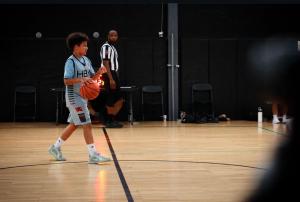
Youth Sports Foster Positive Mental Health
Advisory Board Tackles Most Pressing Needs of Youth Through Sports
— Jennifer Thompson, CEO
FLEMINGTON, NJ, UNITED STATES, July 23, 2025 /EINPresswire.com/ — United Way of Hunterdon County is proud to announce the formation of the nation’s first Youth Mental Health & Sports Advisory Board, a groundbreaking initiative uniting experts, coaches, and youth voices to transform the future of youth well-being through the power of play.
The United in Play initiative, already recognized for eliminating financial barriers and providing free mental health resources to youth and families, now takes a bold step forward. The new advisory board will guide national best practices for integrating mental health support into sports programs across all levels, ensuring all children—regardless of background—can access the benefits of play, growth, and thriving mental health.
“Every child deserves the chance to play, grow, and thrive—on and off the field or court,” said Jennifer Thompson, social worker and CEO of United Way of Hunterdon County. “We are living in the middle of a youth mental health crisis, and it’s time for bold, collective action. By bringing together leading minds in mental health, youth sports, and lived experience, our advisory board will pioneer a new era where coaches are equipped, families are supported, and no child is left behind. We’re not just responding to a crisis—we’re building hope, resilience, and opportunity for every young person in America.”
Key Facts:
* 1 in 5 youth experience a mental health challenge, yet therapy and support remain out of reach for many.
* United in Play partners with recreational and club programs to provide access to sports and equipment for ALICE (Asset Limited, Income Constrained, Employed) families.
* United Way of Hunterdon County provides trauma-informed training and certification for youth sports coaches. Programs are available in-person and online.
Youth Mental Health & Sports Advisory Board Members include:
* Dr. Marlon Grey, Founder EmpowerU
* George Mercado, HBA Director and Coach
* Cheryl Kuster, Nonprofit Leader & Youth Sports Advocate
* Todd Spidare, Owner Fyzical and Club Pilates
* Eric Eisenhart, Managing Partner, Pro-Activity
* Mathew Walker, Director of Football, DVRR Jr. Terriers, Coach
* Pat Spencer, LCSW, Owner, Getting Your Mind in Gear
* Lacy Phelps, Financial Advisor, Edward Jones
* Kevin Graeves, HBA Coach & Youth Sports Trainer
* Scott Koral, Sports Reporter
* Mitchele Drulis, Owner of Evolution Gym
* Jacque Beason, Parent of Youth Athlete & Retired NFL Cheerleader
* Kelly Denti, Owner, Nex Level Ninja
The new advisory board includes national youth representatives, mental health professionals, sports leaders, and community advocates. Together, they will shape policy, drive awareness, and champion innovative solutions at a national level.
About United Way of Hunterdon County:
United Way of Hunterdon County is dedicated to building thriving communities by advancing financial security, youth opportunities, and health for all. Through United in Play and other programs, the organization leads the way in addressing the urgent needs of today’s families and youth.
For more information, to sign your team or league up for training, partnership opportunities, or to join the movement, visit: https://www.uwhunterdon.org/unitedinplay
Jennifer Thompson
United way
+1 917-969-9765
email us here
Visit us on social media:
LinkedIn
Facebook
Legal Disclaimer:
EIN Presswire provides this news content “as is” without warranty of any kind. We do not accept any responsibility or liability
for the accuracy, content, images, videos, licenses, completeness, legality, or reliability of the information contained in this
article. If you have any complaints or copyright issues related to this article, kindly contact the author above.
![]()
Health
Man Catches Plague From His Cat
MedPageToday Case occurred outside the typical season, suggesting the influence of a changing climate. In a rare, off-season occurrence, a man in Oregon contracted plague from his infected cat, researchers reported. The case occurred in January 2024, earlier in the year than all of the other 18 cases of plague reported in Oregon in the […]


MedPageToday Case occurred outside the typical season, suggesting the influence of a changing climate. In a rare, off-season occurrence, a man in Oregon contracted plague from his infected cat, researchers reported.
The case occurred in January 2024, earlier in the year than all of the other 18 cases of plague reported in Oregon in the past 90 years, Emilio DeBess, DVM, of the Oregon Health Authority, and colleagues reported in Morbidity and Mortality Weekly Report
Cases typically occur from May to August, DeBess and colleagues noted, suggesting that changes in climate may alter patterns of Yersinia pestis infections. These changes “could potentially cause not only more cases of plague, but an extended season,” DeBess told MedPage Today.

Health
ICBHS
EL CENTRO — The Imperial County Behavioral Health Services (ICBHS) Youth and Young Adult Program is stepping up its outreach efforts for young people between the ages of 14 and 25, with a presence in high schools, middle schools, libraries, and local community events. The initiative offers support for anxiety, depression, and stress, while also […]

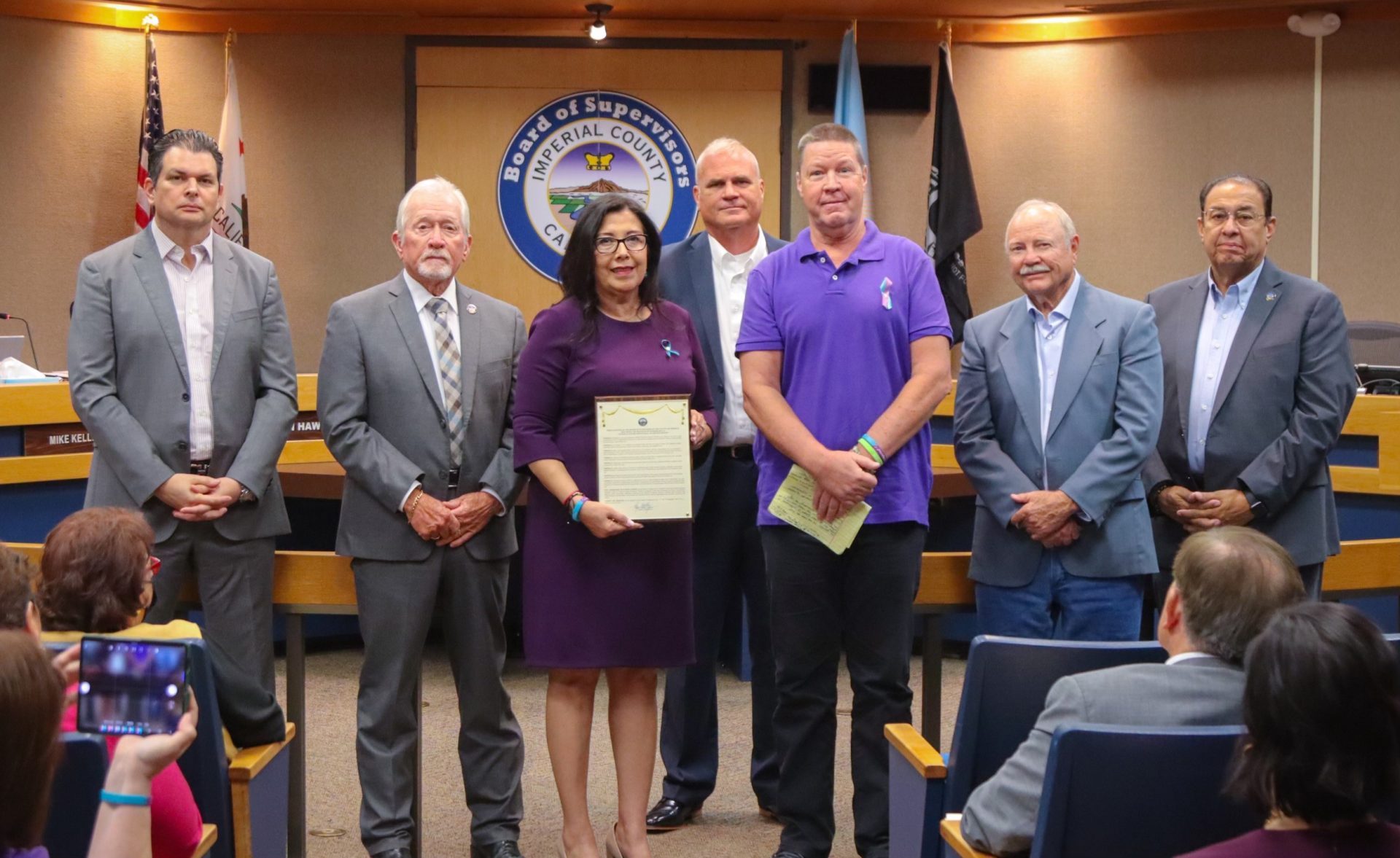
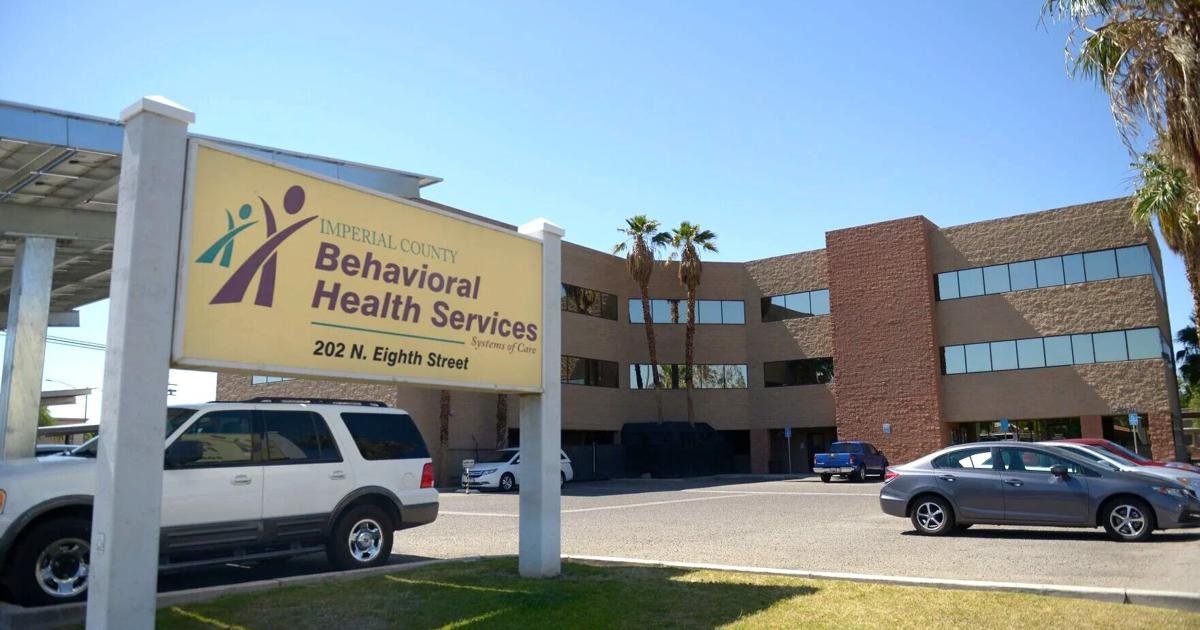
EL CENTRO — The Imperial County Behavioral Health Services (ICBHS) Youth and Young Adult Program is stepping up its outreach efforts for young people between the ages of 14 and 25, with a presence in high schools, middle schools, libraries, and local community events. The initiative offers support for anxiety, depression, and stress, while also educating students on social media pressures and mental health resources.
Lucia Mejia, Community Service Worker for the program, spoke with Imperial Valley Press about the team’s mission to support local youth.
“A lot of anxiety, depression, and stress—that’s mainly what I see from our youth,” Mejia said. “We’re in a lot of high schools and we get to interact with the kids. I do tell them all the time, just because you see it on Instagram or Facebook doesn’t mean it’s real. Remember, you guys, there are filters over there, that whenever you come in person, there’s no filter.”
Adding to the mental health challenges, Mejia said social media distorts kids’ self-image.
“I think a lot of our youth and young adults are going off of what they see on social media, but in reality, we all have imperfections,” Mejia continued. “I think they’re trying to keep up with something that has been fixed or altered to look nice.”
She highlighted a personal example: “So even for us adults as well, it can have its pros and cons. So I can give an example. I have a 14-year-old and he’s like, ‘oh, mom, look at this yacht,’ or ‘this TikToker has this many cars and all this.’ And I’m like, hey, ‘they’re showing you that they have it, but in reality, maybe they owe it. Maybe they just rented it for that video. Maybe it’s not even theirs.’”
Several lawsuits have been filed in California recently in an effort to protect minors from the negative effects of social media. CA AB 2273, also known as the California Age-Appropriate Design Code Act, is a law designed to enhance online protections for children. It requires businesses providing online services, products, or features likely to be accessed by children to prioritize their safety and well-being over commercial interests.
In January 2025, San Diego county officials filed a lawsuit against social media platforms, including Meta and Tiktok, claiming the apps cause digital addiction among youth
Beyond image distortion, Mejia and the Youth Program staff are warning students and parents about hidden risks in social media and online games, particularly those with chat functions that can expose minors to predators.
Reducing stigma around mental health
Despite the risks, social media has opened the door to more open conversations around mental health.
“Before, when we were younger, it was rarely talked about having anxiety and depression. And I think now our youth and our young adults are being more open,” Mejia said.
The Program’s Community Service Worker encourages parents to stay engaged in their kids’ lives through activities and communication.
“Keep them in sports, any sports, any activities,” she said. “Keep them busy with the gym, playing any sports, anything with music lessons, anything that they really enjoy and they’re not being forced to do, something that they enjoy.”
Mejia said keeping an open line of communication between parents and their children is paramount. She admits it can be difficult with work schedules and responsibilities, but parents need to make time with their children.
“Because a lot of the time, a lot of parents are, ‘oh, I’m busy,’ or ‘oh, tell me later,’ or ‘I’m very busy with this and that,’ and that’s where they shift and go somewhere else,” Mejia said. “I think we as parents, just by showing and being supportive and being there for our kids and listening, will have that trust or confidence to come to us and explain, and I mean, what better for us as parents than to give our own children the right advice, right?”
Therapy without parental consent
For youth hesitant to talk to parents or those experiencing issues at home, the law allows for confidential access to therapy starting at age 12.
“Minor consent is by law; anyone that’s 12 and up and mature enough, they can go ahead and start treatment with us,” Mejia said. “They do not need a parent with them.”
Mejia explained that during school hours, no insurance or parental signature is required.
“So for school hours, we don’t ask for insurance. We don’t ask for parent signatures, no address or anything. We don’t contact home or parents,” she said. “So they can go ahead and get minor consent and get therapy only. There’s no medication because they’re underage, but we work with them with therapy.”
Mejia also explained that they do not report or share information from sessions with parents unless the child is at risk of harm.
Special services for at-risk youth
The Youth Program is divided into two branches: general anxiety and depression, and Full Service Partnership (FSP), which serves high-risk populations such as unsheltered youth and those on probation or recently released from juvenile hall.
The program is divided into two sections—anxiety and depression, and FSP.
“FSP clients, the ones that fall in FSP are either unsheltered or they are in probation or they’re coming from a juvenile hall. So those—the FSP clients—are a little bit more delicate; they’re in a little bit tougher situation. So for those clients, we do provide transportation,” she said.
The ICBHS will pick up and drop off the client at their residence. The program also offers tangible incentives for FSP participants.
“If they are in that program, FSP, we have contracts with some gyms here in the county. So we pay for the gym membership. We pay for music lessons or music classes,” she said. In addition, they also offer equine therapy.
“We cover everything, all the expenses, as long as the clients are consistent,” Mejia stated. “They have to be coming and being consistent with their therapies so that way we can go ahead and cover for that.”
Connecting to other services
Mejia said ICBHS also helps clients connect to other county-run wellness or addiction programs.
“For example, there’s anxiety and depression—someone that has anxiety and depression and they started, I don’t know, smoking weed or drinking; we do have a program for substance use disorder that we would do linkage with,” she said.
Those wishing to enroll in services outside school hours can contact the ICBHS for more information and appointments.
Health
McCuskey urges NCAA to restore female athletes' records wrongfully erased by biological males
CHARLESTON, W.Va (WDTV) – Attorney General JB McCuskey has joined a letter urging the NCAA (National Collegiate Athletic Association) to restore female athletes’ records that he says were wrongfully erased by male competitors. McCuskey joins 20 other Attorney Generals in supporting the letter led by Mississippi Attorney General Lynn Fitch. In the letter, the Coalition […]


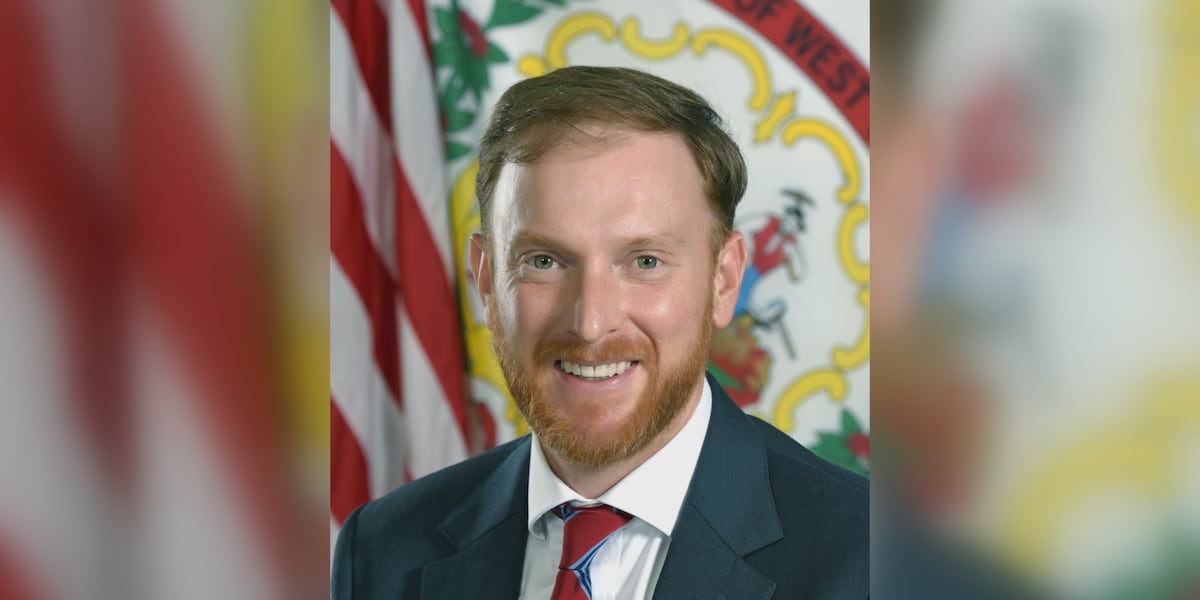
CHARLESTON, W.Va (WDTV) – Attorney General JB McCuskey has joined a letter urging the NCAA (National Collegiate Athletic Association) to restore female athletes’ records that he says were wrongfully erased by male competitors.
McCuskey joins 20 other Attorney Generals in supporting the letter led by Mississippi Attorney General Lynn Fitch.
In the letter, the Coalition urges the NCAA to restore to female athletes the records, titles, awards and recognitions that they rightfully deserve.
The Attorney General claims these accolades were denied because of policies that allow biological males to compete in female categories.
“Biological men should have never been allowed to compete against biological women in the first place,” Attorney General McCuskey said. “But thankfully, we are starting to see the country and our policies turn back to a place where women’s rights matter. Restoring these records to these women is the least schools can do to return what was stolen from them. This is the right thing to do.”
The announcement Tuesday is in line with McCuskey’s ongoing focus on women’s sports and transgender athletes.
McCuskey and the Coalition go on to say, “The NCAA should take this step for former athletes to preserve the integrity of Title IX and show your support for women harmed by years of bad policy.”
West Virginia has passed the ‘Save Women’s Sports Act,’ which provides that girls’ sports teams based on “competitive skill” should not be open to biological males.
Just last month, the U.S. Supreme Court agreed to hear a case against a transgender athlete from Bridgeport High School.
The case involves a challenge to the West Virginia’s ‘Save Women’s Sports Act,’ which McCuskey says protects biological female athletes by keeping sports competitive and safe for women and girls.
The Supreme Court is expected to hear that case during its October 2025 term.
If you would like to read the Coalition’s letter, you can find it here.
Prior coverage:
Copyright 2025 WDTV. All rights reserved.
Health
Maryland Athletics Increases Support, Keeps Sights Set Toward Future Opportunities
Story Links Maryland Athletics raised more than $33 million through the Terrapin Club in the 2024-25 fiscal year, its highest mark since 2021-22. That figure includes more than $18 million in cash, the highest mark in recent history and a key metric as college athletics heads into the new revenue-share era. More than 8,900 donors […]



Maryland Athletics raised more than $33 million through the Terrapin Club in the 2024-25 fiscal year, its highest mark since 2021-22. That figure includes more than $18 million in cash, the highest mark in recent history and a key metric as college athletics heads into the new revenue-share era.
More than 8,900 donors invested in Maryland Athletics through the Terrapin Club this year, the most since 2011, and a 26% increase from the previous year, the highest single-year jump in the past 25 years. This number also represents the fourth consecutive year of growth in this area.
“These results are not only a testament to our community and their dedication to Maryland Athletics, but they also illustrate the collective impact Terps supporters can have on student-athletes, programs and the department,” said Kirby Mills, Senior Associate Athletics Director and Chief Development Officer. “However, this is only the start of our work. This coming year, and in years to come, we have lofty aspirations that can only be accomplished together.”
Areas of focus for the 2025-26 year and beyond include increasing unrestricted support that can provide flexibility toward revenue-share expenses and additional scholarships for student-athletes, continuing to upgrade facilities through Maryland Athletics’ Building Champions campaign, cultivating the future of Maryland Athletics support through the launch of a “next generation” program and growth of the Student Terrapin Club, building endowment support across all areas of the enterprise, including student-athlete scholarships, coaching positions and sport programs, and fostering a culture of volunteerism and advocacy across the University of Maryland community.
The Victory Circle, Maryland Athletics’ leadership giving society for those who invest $50,000 or more, added or renewed 61 members this year, the most since the society was formed in 2019 and a 27% year-over-year increase from last year. This year’s efforts pushed the total Victory Circle membership to more than 230.
#UMD is proud to announce an $18M gift from Stephen Schanwald ’77 to support @UMTerps, which helped launch his career, as well as a new @SmithSchool sports management program to launch careers for future Terps.
Read more: https://t.co/5pqb2PA2hK
— Univ. of Maryland (@UofMaryland) December 3, 2024
A transformational gift for the Terps! 🐢 ❤️
Margie & Bob Bedingfield (’72 & ’70) have committed $1.625M to Maryland Athletics, creating two endowed scholarships to support student-athletes for generations to come.
🧵 1/3 pic.twitter.com/mxggSC8lhT
— Maryland Terrapins (@umterps) February 26, 2025
Nearly 30 endowments were established this year to fund student-athlete scholarships across numerous sports and provide consistent support for our student-athlete priorities, including mental health resources and international travel opportunities.
A group of Maryland Football letterwinners who played during the Jerry Claiborne Era of 1972-81, led by Jonathan Claiborne, Kyle Lorton and Bob Schwartz, raised $300,000 to fund a football scholarship in memory of Coach Claiborne.
The Building Champions campaign, a comprehensive effort to provide Maryland Athletics top-notch facilities across all its sports, reached a number of milestones this year, including the opening of the Stanley Bobb Baseball Performance Center and the Maryland Softball Performance Center. Progress continues on the Barry P. Gossett Basketball Performance Center, which is slated to open before the start of the 2025-26 men’s and women’s basketball seasons.
It was our honor to hold today’s Stanley Bobb Baseball Performance Center dedication
We want to thank the Bobb family for their amazing and gracious support of Maryland Baseball pic.twitter.com/77qwW1RytX
— Maryland Baseball (@TerpsBaseball) May 15, 2025
The community once again stepped up on Giving Day as nearly 700 individuals gave more than $600,000 toward supporting Maryland Athletics, which finished in the top three in total dollars and top four in total donors among all campus units in a record-breaking year for the annual campus-wide campaign.
All gifts to Maryland Athletics through the University of Maryland College Park Foundation count toward Terrapin Club giving level and accrue Terpoints, including the recently introduced per seat model for football and men’s basketball season tickets. Click here to make a gift to Maryland Athletics through the Terrapin Club or go to umterps.com to learn more about how philanthropy can make a difference for Maryland’s 500-plus student-athletes and 20 varsity programs.
-

 College Sports2 weeks ago
College Sports2 weeks agoWhy a rising mid-major power with an NCAA Tournament team opted out of revenue-sharing — and advertised it
-

 Sports2 weeks ago
Sports2 weeks agoNew 'Bosch' spin
-

 Fashion1 week ago
Fashion1 week agoEA Sports College Football 26 review – They got us in the first half, not gonna lie
-
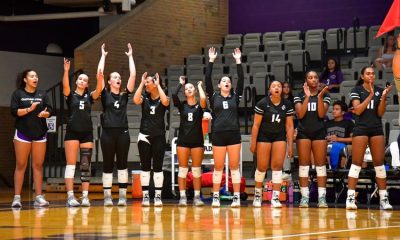
 Sports1 week ago
Sports1 week agoVolleyball Releases 2025 Schedule – Niagara University Athletics
-

 College Sports3 weeks ago
College Sports3 weeks agoMSU Hockey News – The Only Colors
-

 Sports3 weeks ago
Sports3 weeks agoE.l.f Cosmetics Builds Sports Marketing Game Plan Toward Bigger Goals
-

 Health2 weeks ago
Health2 weeks agoCAREGD Trademark Hits the Streets for Mental Health Month
-

 College Sports2 weeks ago
College Sports2 weeks agoBuford DB Tyriq Green Commits to Georgia
-

 Youtube2 weeks ago
Youtube2 weeks agoWill LeBron James request a trade? 🤔 Windy says MULTIPLE TEAMS would make offers 👀 | NBA Today
-

 Youtube2 weeks ago
Youtube2 weeks agoWill Giannis DEPART Milwaukee⁉️ + How signing Turner & waiving Dame impacts the Bucks | NBA Today




























